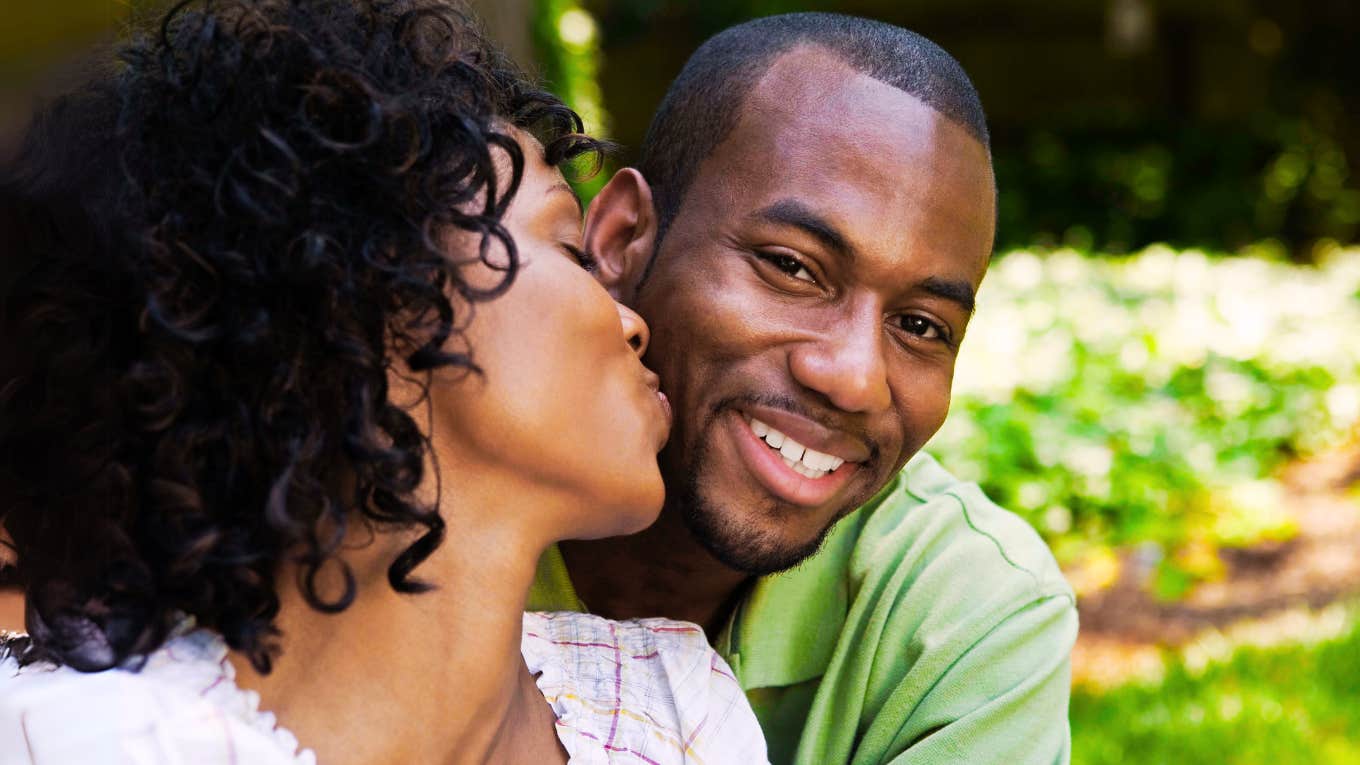The 7 Types Of Relationships That Just Work, According To Clinical Psychologist
Why some partnerships just magically click, and others don't.
 Jupiterimages | Canva
Jupiterimages | Canva As a couples counselor, clinical psychologist, and someone who asks friends about intimate details of their marriages as frequently as others ask friends about their weekend plans, I think I have learned a lot about marriages.
Since you guys loved my book Couples You Meet in Counseling: 7 Common Relationship Dynamics That Sabotage Closeness about dysfunctional dynamics I see in therapy, I thought you would like to hear about the types of relationships that just work well.
Here are the seven types of relationships that just work:
1. The practical and the inspired
 Drazen Zigic / Shutterstock
Drazen Zigic / Shutterstock
This is the familiar dynamic of the business guy and his artistic wife, or the homemaker who runs everything and the ADHD entrepreneur who wouldn’t eat lunch if his wife didn’t pack it.
These two are very impressed by each other. The practical partner is blown away by the other’s creativity, drive, and outside-the-box thinking, and the inspired partner has no idea how the other stays so grounded, sane, and productive. This couple is often The Fun Guy And His Responsible Wife (or the gender inverse).
2. The intellectual and the emotional
 Yuri A / Shutterstock
Yuri A / Shutterstock
This is the woman who says, “My husband is so smart, I just can’t understand what he’s even talking about” or the man who says, “I can crunch numbers, but my wife connects with people.”
Sometimes it’s the guy who is mechanically gifted and a woman who writes or teaches for a living. Sometimes it’s an IT guy and an intuitive stay-at-home mom.
Either way, this variation of couple #1 understands that they complement and complete one another, and both partners feel that they would be lost without the other. This dynamic shows that frequently, opposites do attract.
3. The lover and the loved
 Drazen Zigic / Shutterstock
Drazen Zigic / Shutterstock
In very few cases, partners love one another equally. Usually, there is one more sensitive or romantic partner and one who is less emotional.
This can work when the less emotional partner (who may be more narcissistic) still likes being adored and showered with affection.
This is the guy who buys a new car for his wife and wraps it with a bow or the wife who shops for lingerie to wear for her husband’s birthday and runs out to the store if she forgot an ingredient for his favorite meal.
The more romantic partner just loves the act of being romantic, and the other partner likes the attention. This dynamic can last forever, or else it can turn sour if the loved partner wants the romantic partner to be more practical/”grown up”, or if the romantic partner turns that romantic attention onto someone new outside the marriage.
4. The best friends
 Yuri A / Shutterstock
Yuri A / Shutterstock
This couple enjoys the same things, has many of the same friends, and does not usually fight. Their kids are happy and well-adjusted, and the couple seems calm and happy, even though there is not much “romance” to be seen.
This is a common dynamic among high school or college sweethearts, who have been together for many years and were possibly each other’s only serious relationship. The problem here can be that this couple’s love life may not be that passionate, and in the worst case, they can become very disconnected.
However, sometimes this does not bother either of the partners and instead, they feel lucky to have found a partner that feels so much like “home.”
5. The power couple
 Ground Pictures / Shutterstock
Ground Pictures / Shutterstock
These two love the image that they project, and both enjoy being successful and enviable. They affirm each other’s success and desirability frequently.
For example, this is the guy who loves that his wife turns heads when she walks into the room or the wife who brags about her husband’s great new job offer. These two like how perfect they seem to others, and they are committed to their careers (or they can be one working outside the home parent and one stay-at-home parent) and their family.
Often, at least one of these partners had a difficult childhood and is now happy to finally have the type of family life that was never within reach. Some think this type of couple is narcissistic, but if it works for them, it works. The danger can be that this couple starts to focus more and more on outward appearances, and does not nurture the marriage.
6. The rescuer and the rescued
 Mladen Mitrinovic / Shutterstock
Mladen Mitrinovic / Shutterstock
Many couples have a hint of this in their story, and either one, or both, can play either role. This is the guy who drank and partied, never keeping a job until the stabilizing force of his now-wife shaped him up.
Or the woman who came from an abusive family who never had a protective male figure in her life until meeting her husband. Or two lost souls who found one another and created their own little family.
These couples are fiercely loyal, and their relationship often thrives on recounting the story of how they redeemed one another. The way this can turn bad is if one partner stops feeling grateful to the other, or if one partner looks outside the marriage to “rescue” someone else who is worse off than the now-stronger partner.
7. The passionate couple
 Yuri A / Shutterstock
Yuri A / Shutterstock
This couple fights passionately and makes up even more passionately. This dynamic is common in couples where one or both partners have ADHD, Bipolar Disorder, or Borderline Personality Disorder.
Over time, especially if these disorders are untreated, the fights get worse and worse, with fewer makeups in between. Also, if this couple has kids, often at least one partner will want to change this dynamic, and the other will become angry and bored.
None of this is conscious; both partners often say that they “hate drama” and blame the other partner for the fights. Yet, both seem to thrive on this up-and-down cycle.
This is the only one of the types that can be toxic even if both partners are relatively happy in it, if there are children involved that witness the conflict. In this case, partners should go to counseling to work on expressing their intensity in other ways.
The point of this post was to show how many different paths there can be to functional relationships. The current Western ideal of two intellectual and emotional soulmates is not that common. Most of the time, relationships fit into other molds, and that’s okay.
Dr. Samantha Rodman Whiten, aka Dr. Psych Mom, is a clinical psychologist in private practice and the founder of DrPsychMom. She works with adults and couples in her group practice Best Life Behavioral Health.

